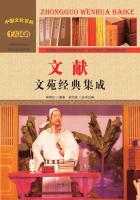When a country is so far advanced in population as to be distressed for food;and when the forementioned resources havebeen exhausted,it has then reached its utmost limits;and in such a case,against increasing want there can be two remediesonly which are natural,and one unnatural:for either none must marry,but they who can maintain a family,or else all whoare in distress must emigrate.If these natural remedies are rejected,it can remain only for the poor to expose their childrenthe moment they are born,which is the horrid practice adopted in the richest country upon earth to preserve thecommunity from famine.With regard to celibacy,we may observe,that where things are left to a course of nature,onepassion regulates another,and the stronger appetite restrains the weaker.There is an appetite,which is and should beurgent,but which,if left to operate without restraint,would multiply the human species before provision could be made fortheir support.Some check,some balance is therefore absolutely needful,and hunger is the proper balance;hunger,not asdirectly felt,or feared by the individual for himself,but as foreseen and feared for his immediate offspring.Were it not forthis the equilibrium would not be preserved so near as it is at present in the world,between the numbers of people and thequantity of food.Various are the circumstances to be observed in different nations,which tend to blunt the shafts of Cupid,or at least to quench the torch of Hymen.In many parts of Europe we see multitudes of both sexes,not from policy,butfrom superstition and religious prejudice,bound by irrevocable vows of chastity.In other parts we hear of numbers whoare compelled to spend their days in a seraglio,where it is not to be expected that all should be prolific;whilst inconsequence of this unjustifiable practice,a corresponding number must pass through the world without leaving arepresentative behind them.But in every country,at least on this side the Atlantic Ocean,we find a similar effect fromprudence;and without the assistance of either a seraglio,or a convent,the younger branches of the best families have beenleft to wither.In every country multitudes would marry,if they had a comfortable prospect for themselves,and for theirchildren;but if all should listen to this call of nature,deaf to a louder call,the whole world in a few years would bedistressed with famine.Yet,even in such a case,when it is impolitic that all should marry,this should be wholly left toevery man's discretion,and to that balance of the appetites which nature has established.But if,notwithstanding therestraints of distress and poverty,they who are not able to maintain a family will yet marry,there can be no resource but inemigration.In the highlands of Scotland,when the inhabitants became a burthen to the soil,they tried every possibleexpedient;and,when all others failed,their young men with reluctance turned their back upon a country which was notable to support them.It is well known that their emigrations are considerable.They do not issue forth in assembledmultitudes,like swarms from the northern hives of old;nor do they,like a torrent,overflow and desolate the adjacentcountries;but,like the silent dew,they drop upon the richest pastures,and wandering to the remotest corners of the earthin quest of food,with the industry of bees they collect their honey from the most luxuriant flowers.These active,hardy,and laborious people,are to be found in the temperate,in the torrid,and in the frigid zones,in every island,and on everyhabitable mountain of Europe,Asia,Africa,and America.Yet in their native country the numbers never fail:the supply isconstant.Now,if,instead of collecting for themselves wherever food is to be found,these wanderers had been equallysupported on their barren mountains by contributions from the more fertile rallies of the South,can we imagine that thebirths in Scoff and would be fewer than they are at present?The overflowings of their population might have beenaccelerated,but could not thereby have been retarded.Having no contributions from the South,they have quitted theircountry,and made room for others.We are told,upon the best authority,(14)that in the highlands of Scotland,a woman willbring twenty children into the world,and rear only two.Had she sufficient food for more,more would live.The womenthere,like the women in all countries .which are come to their utmost height of population,are more prolific than the soil.
To provide more food on their bleak and barren mountains,is beyond a question.'But if now,to rear these twenty children,a poor's rate were to be collected in more fertile countries,yet in countries which are fuliy peopled in proportion to theirlabour and to the produce of the soil,is it not evident,that the scarcity and distress would only be transferred,and that thechildren of the South must die,that the children of the North might live?But supposing these should live;yet at best theycould only take the place of those that died,and more women in the North would increase and multiply,till they felt thesame degree of pressure which they feel at present.Neither Switzerland nor the coast of Africa are depopulated byemigrations,because the quantity of food in each remains unaltered.It is with the human species as with all other articles oftrade without a premium;the demand will regulate the market.
By establishing a community of goods,or rather by giving to the idle and to the vicious the first claim upon the produce ofthe earth,many of the more prudent,careful,and industrious citizens are straitened in their circumstances,and restrainedfrom marriage.The farmer breeds only from the best of all his cattle;but our laws choose rather to preserve the worst,andseem to be anxious lest the breed should fail.The cry is,Population,population!population at all eventsl But is there anyreasonable fear of depopulation?We have seen that corn upon an average has been considerably cheaper since thecommencement of the present century,than it was for an equal term be~fore;yet wages have been raised in the proportionof six to four,and the rent of land is doubled.May we not infer from hence,that the produce of the soil must haveincreased nearly in the same proportions.If we consider the improvements which have been made in agriculture,byclearing woods,inclosing wastes,draining morasses,laying the common fields in severally,and making roads;by theintroduction of clover,saintfoin,turneps,and potatoes;by the breaking up of extensive downs;and by the superior skill ofthe present race in the management of all sorts of land,with respect to stocking,manuring,cropping,not forgetting theirsuperior weight of capital to work with;we shall cease to wonder at this vast increase of produce.But is it possible that theproduce should be thus increased,and not the people also who consume it?We need not desire any man to visit London,Norwich,Bath,Bristol,Hull,Liverpool,Leeds,Wakefield,Manchester,and Birmingham;we need not call upon him toview our mines of coal,copper,lead,iron,and tin,with all the new manufactures which depend on these:but let him atleast count our flocks,and calculate the quantity of corn produced by recent improvements in our tillage;then let him askhimself if our population is increased.
Whilst food is to be had,there is no fear of wanting people.But should the population of a country get beyond the produceof the soil,and of the capital engaged in trade,how shall these people find employment?Whenever this shall be the case,the evil will increase,and the capital will go on constantly diminishing;like as in private life,when a gentleman breaks inupon his principal to pay the ordinary expences of his family.When a trading nation is obliged to spend more than therevenue which is derived from commerce,and not from accident,but as the effect of some abiding cause,exceedscontinually the profit of its trade,without some substantial reformation,the ruin of that nation will be inevitable.Should thecapital itself accumulate,the interest of money would be lowered,the demand for labour would increase,and thesuperlucration on this increase of trade would continue to enlarge the capital.Speculation apart,it is a fact,that in Englandwe have more than we can feed,and many more than we can profitably employ under the present system of our laws.















